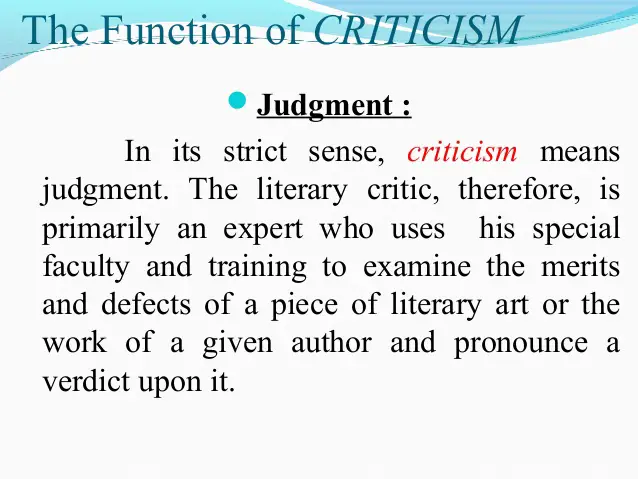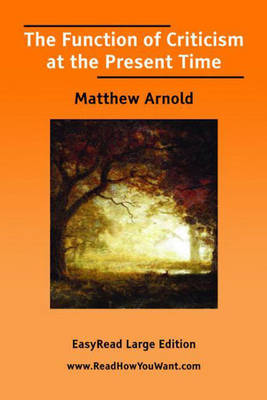It was in Arnold’s first collection of critical writings, ‘Essays in Criticism’ in 1865, that his essay, “The Function of Criticism at the Present Time” was published. Before the publication of three essays, he had just got done with some lectures on the translation of Homer- works which bear, in a less developed form, some of Arnold’s ideas on the need for new, intelligent criticism in England.
Criticism ought to be a ‘dissemination of ideas, an unprejudiced and impartial effort to study and spread the best that is known and thought in the world’, is what Matthew Arnold says in his essay- The Function of Criticism at the Present Time (1864).

He writes that when assessing a particular work, the goal is ‘to see the object as in itself it really is’. Psychological, historical and sociological backgrounds are immaterial. This attitude was very influential and particularly noteworthy with later critics.
Fundamental argument in function of criticism
The fundamental argument of the essay describes what Matthew Arnold felt to be the existing attitude that the constructive, creative capacity was much more important than the critical faculty. His extensive definition of criticism, however-” the endeavour, in all branches of knowledge, theology, philosophy, history, art, science, to see the object as in itself it really is”-causes to be criticism a necessary pre-requirement for a valuable creation.

In his pursuit for the best, a critic Arnold believed that it should not only restrict or limit himself to the literature works of his own country but should draw significantly on foreign literature and ideas to a large extent, because the spreading of ideas should be an objective venture.
At a particular point in his career, Matthew Arnold was well-liked and a much-accepted poet. But later in his life, his interest turned with vigor to criticism of both literary works and forms and the social fabric of society. According to Matthew Arnold, Criticism, in his essay, The Function of Criticism at the Present Time, functions as an attempt or an effort that is not necessarily dependent upon any creative art form; rather criticism is intrinsically valuable in itself, whether its value sprouts from bringing joy to the writer of it or whether that value roots from making sure that the paramount ideas reach society.
He connects criticism with creative power right through the essay and terminates with an idea that links to the earlier one above when he emphasize that that writing criticism may actually produce in its practitioner a sense of ecstatic creative joy just like someone engaging in what we normally think of creative writing feels.
Arnold makes an effort to demonstrate that criticism in and of itself has several significant functions and should be observed as an art form that is as high and important as any creative art form.